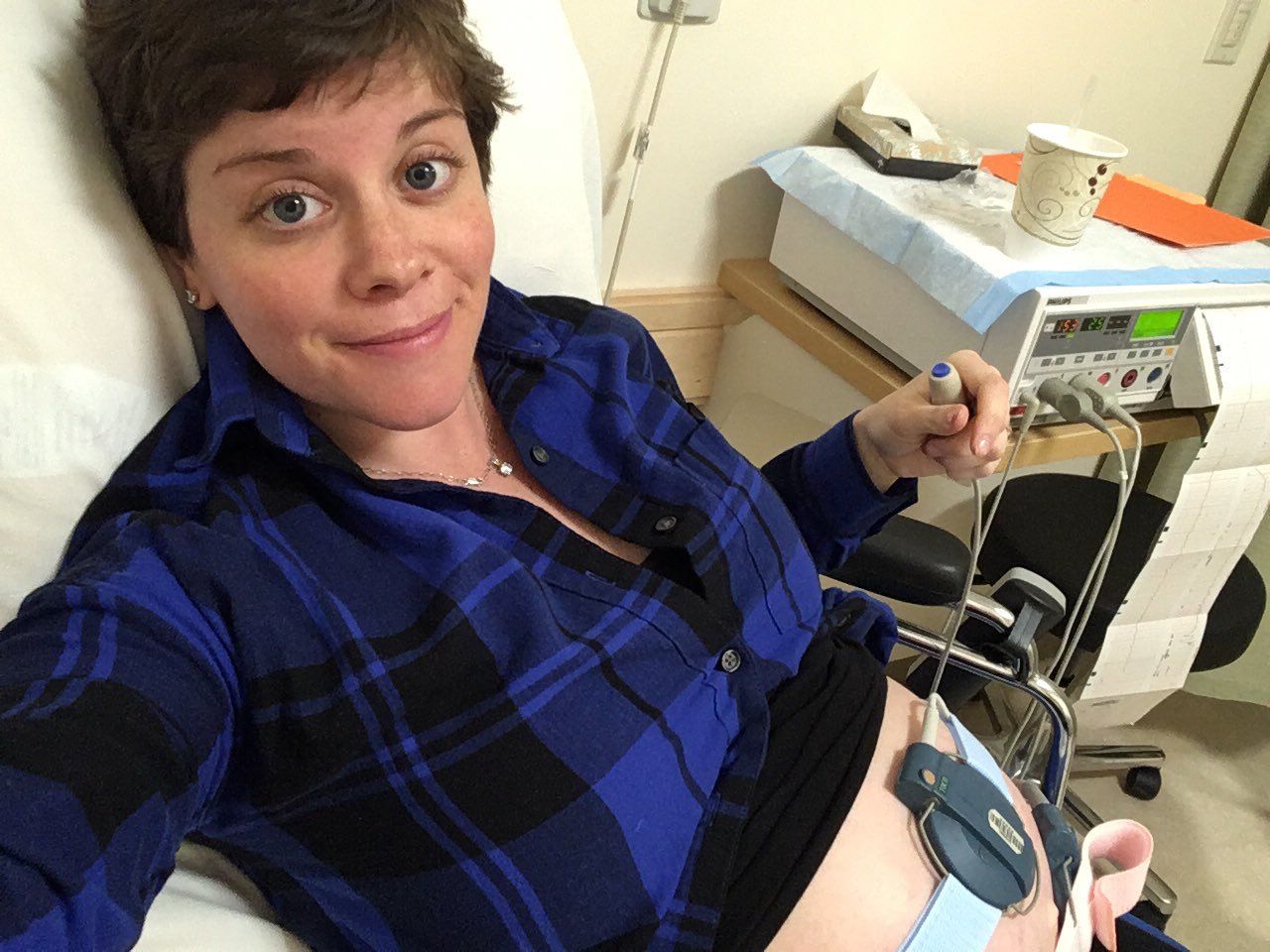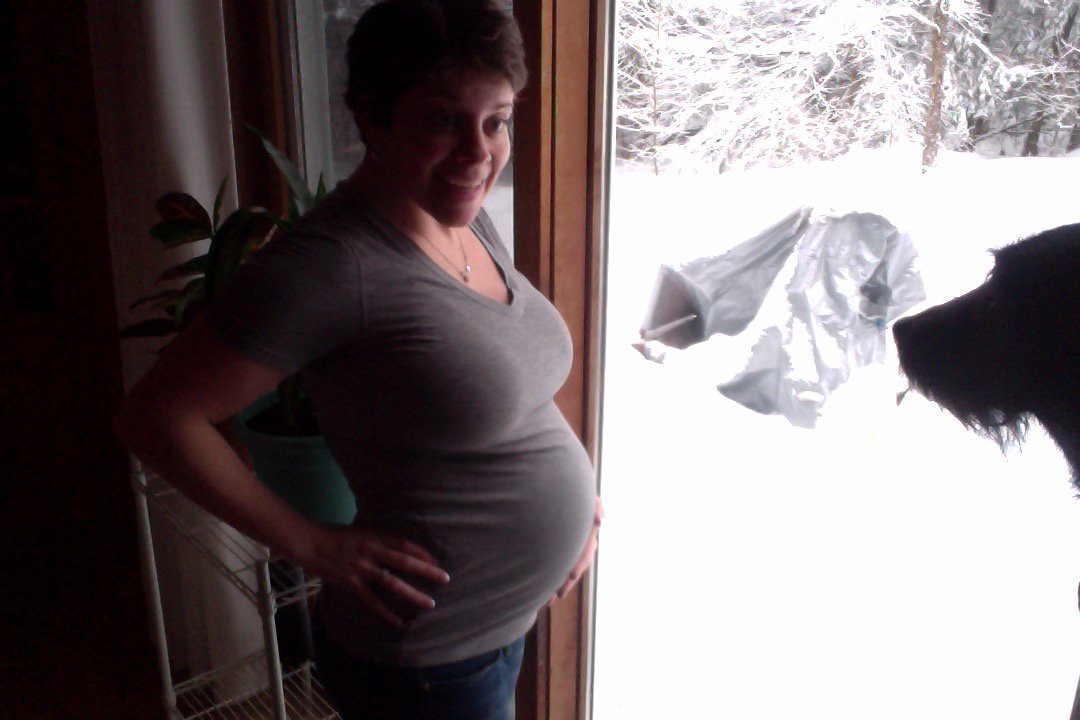3 Reasons It Is Not Okay to Shame Pregnant Women With Diabetes
1. Why should a woman who has been diagnosed with diabetes of any type be expected to achieve non-PWD blood sugars?
If that was easily possible, they wouldn’t have been diagnosed in the first place. One might argue that doctors aren’t expecting non-PWD blood sugars but simply the “best possible blood sugars” during pregnancy. But if pregnant women are still scolded for imperfect blood sugars, then their healthcare team is contradicting what they know to be logical: the best possible blood sugars for a pregnant woman with diabetes are never going to look perfect on paper.
 It’s only logical that a woman with diabetes is going to have higher than “normal” blood sugar levels because her body is struggling to produce adequate amounts of insulin, amylin, and glucagon. That’s three malfunctions in her body that are going to inevitably affect the size of her baby. My A1C was between 5.1% and 6.4% for the entirety of both of my pregnancies. Yet, I was still scolded for any imperfect blood sugars that appeared on the downloads from my meter! What this really revealed was how little my healthcare team really understood that something as wholesome as an oversized apple can cause a blood sugar of 200 mg/dL (11.1 mmol/L), because I can’t perfectly estimate the exact carbohydrate quantity in that apple. I expect mainstream media to think that only things that raise blood sugar in people with diabetes are doughnuts and cupcakes, but I expect my healthcare team to know better; to know that a great deal of my overall blood sugar levels can’t be perfectly controlled.
It’s only logical that a woman with diabetes is going to have higher than “normal” blood sugar levels because her body is struggling to produce adequate amounts of insulin, amylin, and glucagon. That’s three malfunctions in her body that are going to inevitably affect the size of her baby. My A1C was between 5.1% and 6.4% for the entirety of both of my pregnancies. Yet, I was still scolded for any imperfect blood sugars that appeared on the downloads from my meter! What this really revealed was how little my healthcare team really understood that something as wholesome as an oversized apple can cause a blood sugar of 200 mg/dL (11.1 mmol/L), because I can’t perfectly estimate the exact carbohydrate quantity in that apple. I expect mainstream media to think that only things that raise blood sugar in people with diabetes are doughnuts and cupcakes, but I expect my healthcare team to know better; to know that a great deal of my overall blood sugar levels can’t be perfectly controlled.
RELATED CONTENT
Being Your Own Advocate in a World of Health Disparities
2. Even when our babies are born within the range of 5.5 to 9.5 pounds, we are still told our babies are “big” because of our diabetes.
My daughters were born weighing 8 lbs., 11 oz., and 7 lbs., 11 oz. Both were well within the range of “normal.” Oddly enough, I was routinely told both before and after they were born that they were “big babies” because of my diabetes.  The genetics of the babies in my family (and my husband’s family) didn’t stop doctors and nurses and ultrasound technicians from lecturing me. My twin brother and I were born a month early to a non-PWD mother and we were still both 6 ½ pounds! My other brother weighed 11 pounds when he was born, and my husband weighed 10 pounds when he was born! Even though family birth-weight trends are a known contributing factor to the size of your own baby’s birth-weight, women with diabetes are told their babies are big, likely due to their imperfect blood sugars. Three of my best friends gave birth to their own children within the same 3-year window when I gave birth to my own children. My children’s birth-weights were less than 2 out of 3 of my friends’ children’s birth-weights. Yet, they were told their baby’s weight was normal, while I was told my children’s weights were the result of my diabetes.
The genetics of the babies in my family (and my husband’s family) didn’t stop doctors and nurses and ultrasound technicians from lecturing me. My twin brother and I were born a month early to a non-PWD mother and we were still both 6 ½ pounds! My other brother weighed 11 pounds when he was born, and my husband weighed 10 pounds when he was born! Even though family birth-weight trends are a known contributing factor to the size of your own baby’s birth-weight, women with diabetes are told their babies are big, likely due to their imperfect blood sugars. Three of my best friends gave birth to their own children within the same 3-year window when I gave birth to my own children. My children’s birth-weights were less than 2 out of 3 of my friends’ children’s birth-weights. Yet, they were told their baby’s weight was normal, while I was told my children’s weights were the result of my diabetes.
RELATED CONTENT
Managing Gestational Diabetes: A Beginner's Guide
3. Pregnant women with diabetes are told by dietitians to eat a diet that isn’t actually going to help reduce their blood sugars.
And they are rarely given glucose meters to actually observe their own levels! This is particularly true for women with type 2 and gestational diabetes. Instead of being advised to reduce the carbs in their diet and focus on an overall lower carb diet, they are told to eat as many as 40 to 60 grams of carbohydrates per meal and 15 to 30 grams of carbohydrate per snack.
If you’ve lived with diabetes long enough, you know that that amount of carbohydrates is going to spike your blood sugar tremendously. It doesn’t matter if those carbs are coming from whole grain oats or a bowl of ice cream—both sources of carb are going to rapidly raise your blood sugar. In fact, a bowl of wholesome brown rice can be more damaging to your blood sugar than a bowl of Ben & Jerry’s ice cream because the fat in the ice cream slows down the digestion far more than the few grams of fiber in the rice does.
This means that not only are pregnant women being scolded, shamed, and blamed for their baby’s large birth-weight, but their healthcare team is giving them nutritional advice that is most likely going to raise their blood sugars and lead to a larger baby. This poor advice is largely the result of traditional healthcare methods and an overall resistance to accepting the fact that carbohydrates of all kinds do raise blood sugar levels.
RELATED CONTENT
One Drop Guide to Carbohydrates
Mothers with Diabetes Speak Out
Mothers with diabetes spoke out on Twitter when asked if they were shamed or scolded for having a “big” baby:"Not shamed so much as worried I was going to have a monster. 3 weeks early induced labor for 34 hours & told I was going to have an emergency section as I could possibly have a 13lb baby! Did they not know that 34 hrs earlier??? Best contraceptive ever. And she was only 8.8lbs.” @ShivGaffney
"Had an OB specialist in the joint diabetes + antenatal clinic tell me at 34wks that even with an A1C of 5.5, as I had, it was just more common for women like me with T1 to have big babies - when the weight prediction was 8lbs.” @Melissa_Writes
"31 yrs ago 1st baby 10lb, 8oz. 30 yrs ago 2nd baby 10lb, 8oz. No shame. Pride. Love. Both still thriving and non-diabetic.” @Fraudster
"1 week before my 8.5-pound baby was born, my doctor took his measurements and completely shamed me about being a pregnant diabetic. He told me I never should have gotten preg & that I could kill my baby with 1 high BG. Berated me until I was hysterical. And THEN when I sent him a log of my BG, insulin, and medication doses and changes, he called me and said ‘everything looks great!’ Never before nor since have I EVER been as livid with a doctor. Seriously not cool to talk to a 38-week pregnant woman like that. The Dr. told me my baby was ‘macrosomic’ and I should never have conceived knowing I was diabetic. He weighed 8 pounds 8 ounces at birth and never had a complication in life.” @SugarFreeSweety
"No shaming, but ultrasound scans are stressful. Need to remember to enjoy seeing little one instead of just focusing on how I feel like I’m going to an exam. Also, I know plenty of non-diabetic people who’ve had babies larger than 9lb.” @AmyLCrees
"I had the shock of how ‘tiny’ she was for a ‘diabetic’ at 6lbs. She was a tiny and very skinny baby but the shock was made clear. However, during pregnancy, I was told to not buy newborn clothes as she would be too big. Needless to say, none of the 0-3 stuff fit her for ages.” @GFadventureer
"My daughter was 9 lbs and 21 inches. People mostly wondered how she fit. My abs were really tight back then (at 21), and I was so small, Drs thought she'd be 4lbs. I was actually given a ton of crap for being tiny. I was given extra growth scans, and someone tried to have a stern talk with me about anorexia (definitely didn't have anorexia).” @Emmerbetic
"Mine was 9lb 7oz, I felt guilty because I felt I hadn’t given her the best start.” @GreenRocketFood
"Not shamed, per se, but I was definitely sensitive to comments about my ‘big’ babies. They were 8.3 and 7.10! Each born a couple of weeks early but the hospital peanut gallery didn’t know that. My docs never made me feel bad - we just kept working toward healthy babies!” @Lindsey_VW
"Yes, from family mainly. Weight seemed to be the biggest concern in clinic too despite HbA1c being in range and few highs. Have to admit to being a little bit gutted she was 8lbs 10oz as I really wanted to prove them all wrong.” @KatyBowers87
How Can We Change This?





